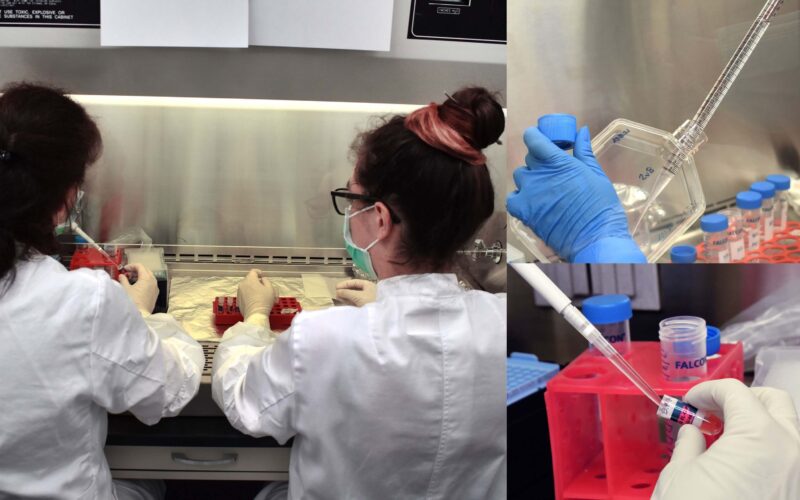Never mind sending humans to space. European aerospace group Airbus is trying to grow human tissue in space as part of efforts to improve drug development and reduce animal testing.
Scientists want to produce three-dimensional organ-like tissues ‒ so-called organoids ‒from human adult stem cells in zero gravity conditions. Producing these tissues here on Earth requires supporting skeletons due to gravity.
Hence University of Zurich researchers have teamed up with Airbus for experiments into whether space could become a workshop for producing miniature human tissue for use in research and medicine back here on planet Earth.
The next samples of human tissue will be sent up with the next ISS supply flight, currently scheduled for late August 2021, according to NASA.
“On Earth, three-dimensional organoids cannot be produced without supporting skeletons because of gravity,” Oliver Ullrich, professor of anatomy at the University of Zurich, explains.
These 3D organoids are of interest to pharmaceutical companies, Airbus Defence and Space said, because they mean toxicological studies can be carried out directly on human tissue without the need for animal models.
Organoids grown from patient stem cells could also be used as building blocks for tissue replacement therapy for damaged organs, helping ease a shortage of donor organs worldwide
The process for the “3D Organoids in Space” project comes from Ullrich and biologist Cora Thiel, who are pioneers in how gravity influences human cells. The Airbus Innovations team is developing the hardware and providing access to the ISS.
Airbus says initial preparatory tests conducted on the ISS in March 2020, when 250 test tubes containing human stem cells spent a month in space, were successful.
“We are the first to show that the path to production in space is feasible, not in theory, but in practice,” says Oliver Ullrich.
In the current mission, tissue stem cells from two women and two men of different ages are being sent into space to test how robust the process is when using cells of different biological variability.
Airbus said the researchers expect production to be easier and more reliable in microgravity than using support structures on Earth.
“With regard to the envisaged commercialisation, we now have to find out how long and in what quality we can keep the organoids grown in space in culture after their return to Earth,” said Ullrich.
The material will return to Earth at the beginning of October, with first results expected from November.
“If successful, the technology can be further developed and brought to operational maturity. Airbus and the UZH Space Hub can thus make a further contribution to improving the quality of life on Earth through space-based solutions,” Airbus project manager Julia Raatschen said.

